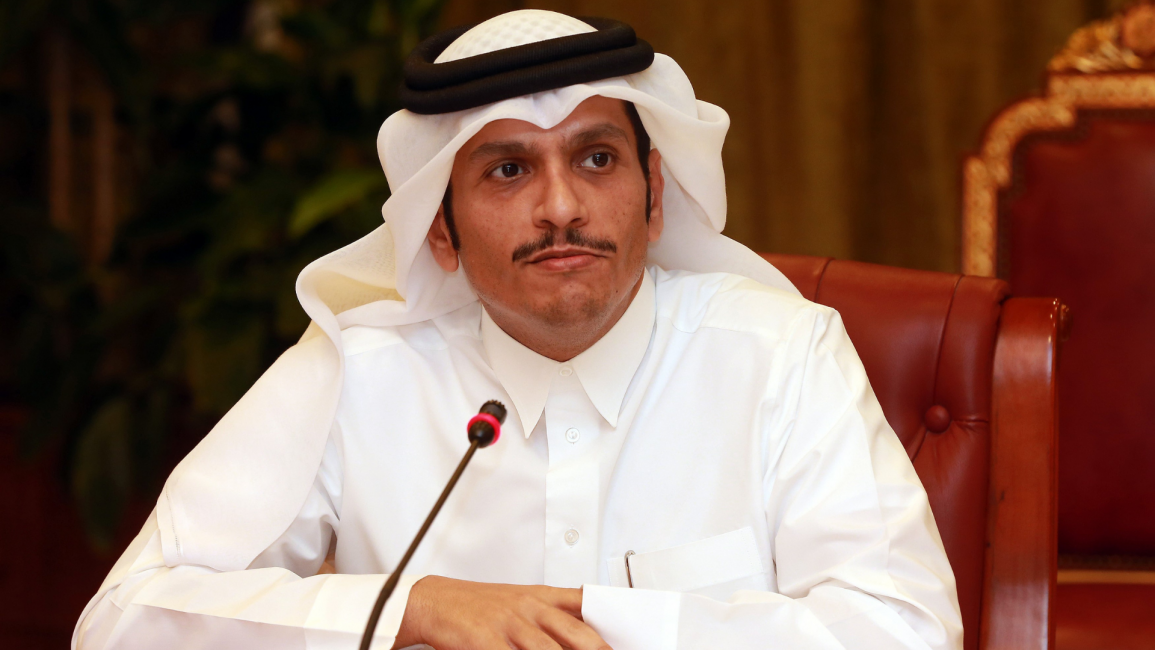Qatar calls for Gulf-Iran talks in bid to ease regional tensions following GCC reconciliation
Foreign Minister Sheikh Mohammed bin Abdulrahman Al-Thani, who has previously called for dialogue with Iran, told Bloomberg TV he was "hopeful that this would happen and we still believe this should happen".
"This is also a desire that's shared by other Gulf Cooperation Council (GCC) countries," he said.
It comes weeks after GCC hawks Saudi Arabia, Bahrain and the UAE re-established ties with Qatar after breaking them off in June 2017 partly over allegations that Doha was too close to Iran and was a supporter of terrorism. Qatar has consistently denied the accusations.
Qatar and Iran share one of the world's largest gas fields and Doha maintains cordial relations with Tehran.
Doha is a close ally of Washington and has previously mediated between the US and Iran, suggesting that Sheikh Mohammed's intervention could be timed as a signal to the incoming administration of the President-elect Joe Biden. Biden is due to take office on Wednesday.
The current occupant of the White House, President Donald Trump, has pursued a policy of "maximum pressure" on Iran and pulled the United States out of a multilateral nuclear deal with it in 2018.
Twitter Post
|
Tehran's arch-rival Riyadh, the dominant Gulf Arab power, has not publicly indicated any willingness to engage with Iran.
Instead Saudi Arabia insisted that this month's rapprochement with Qatar meant the Gulf family would be better able to combat "the threats posed by the Iranian regime's nuclear and ballistic missile programme".
"Qatar will facilitate negotiations, if asked by stakeholders, and will support whoever is chosen to do so," added Sheikh Mohammed.
'Prepared to mediate'
These comments were also echoed by the special envoy to the Qatari foreign minister, Mutlaq Al-Qahtani last week who said Doha's now-neutral position between all parties involved in the recent disputes, as well as its recent experience in mediating, would allow it to possibly help resolve regional differences between Iran, Saudi Arabia and Turkey.
"If these countries see that the State of Qatar has a role in this mediation, then it wold be possible to do so," Al-Qahtani said during an event organised by the Doha Institute for Graduate Studies.
"It is in everyone's interest that there be friendly relations between these countries, especially essential and major nations such as Saudi Arabia, Turkey and Iran," he added, pointing to his country’s recent efforts in resolving disputes.
“Mediation operations carried out by Qatar has given it experience in managing the [Gulf] crisis," he said.
Doha was able to "stop the bloodshed in Afghanistan and launch the Afghan dialogue as well as deal with crises - some which were publicly declared and others that weren't", he added.
Among the demands issued by the blockading quartet in 2017 was the closure of a Turkish military base in Qatar. The Al-Ula Declaration, signed at the annual GCC Summit in the Saudi kingdom, marked the end of the three-year dispute without any of the 13 demands being met.
Shortly following the historic end to the GCC crisis, Qatar Foreign Minister Sheikh Mohammed bin Abdulrahman Al-Thani said Doha's relations with Iran and Turkey will not be affected by its recent reconciliation agreement with the blockading states.
Read also: As Gulf states end rift, Qatar says it will not alter relations with Iran
"Bilateral relationships are mainly driven by a sovereign decision of the country... [and] the national interest," the FM said in an interview with the financial daily.
"So there is no effect on our relationship with any other country."
Follow us on Facebook, Twitter and Instagram to stay connected



